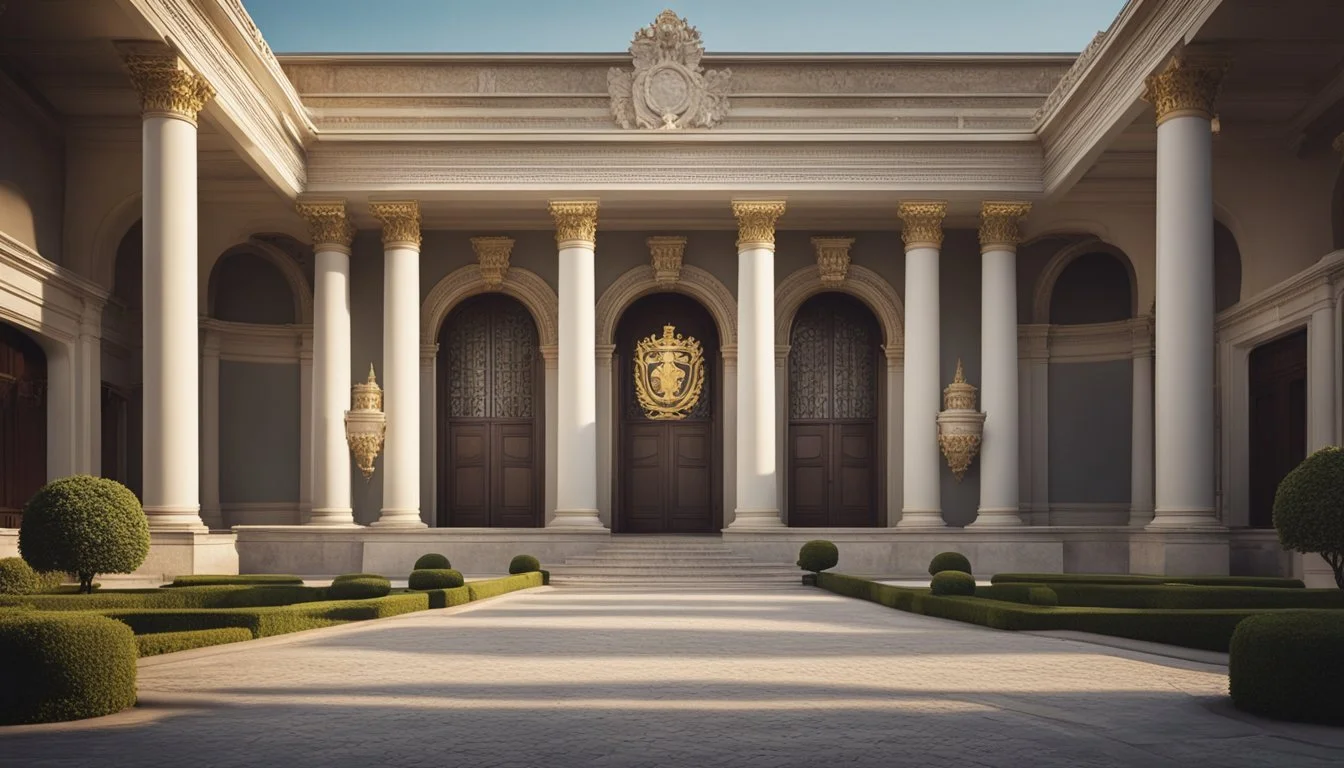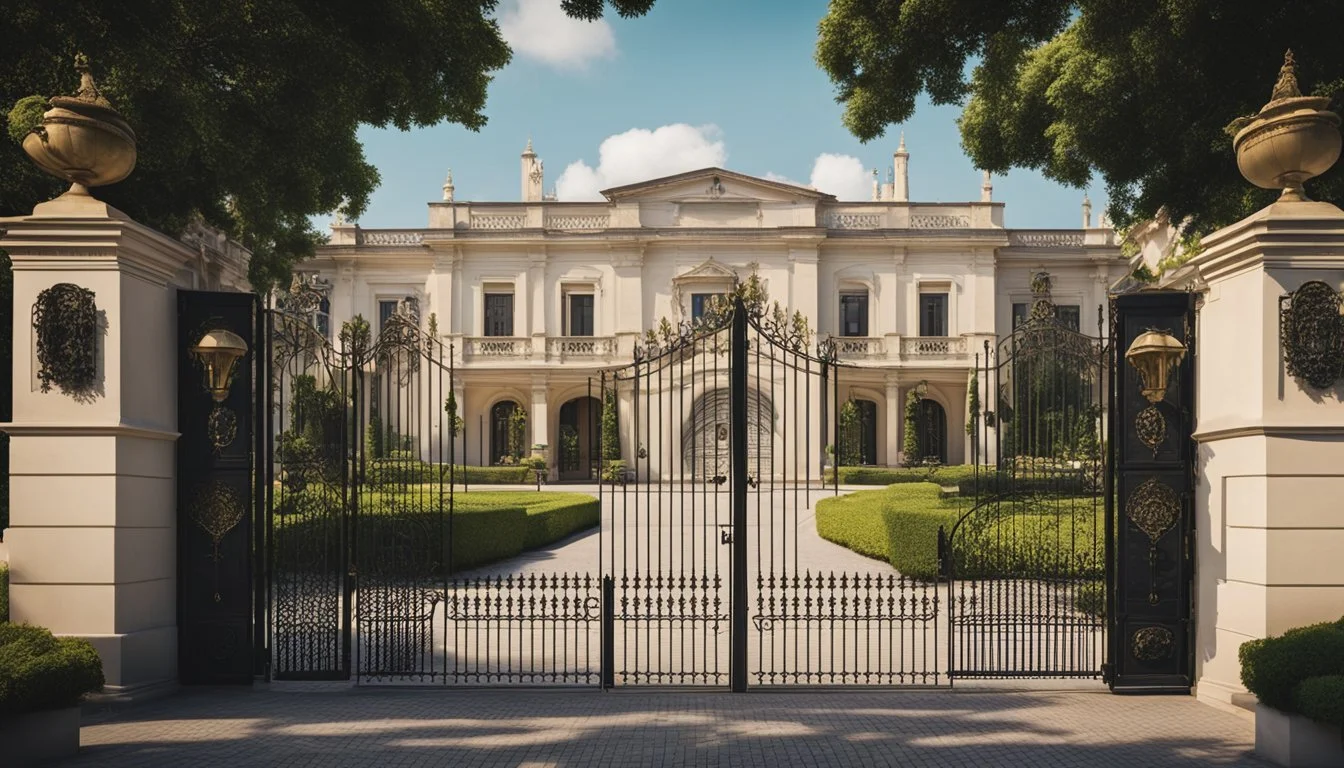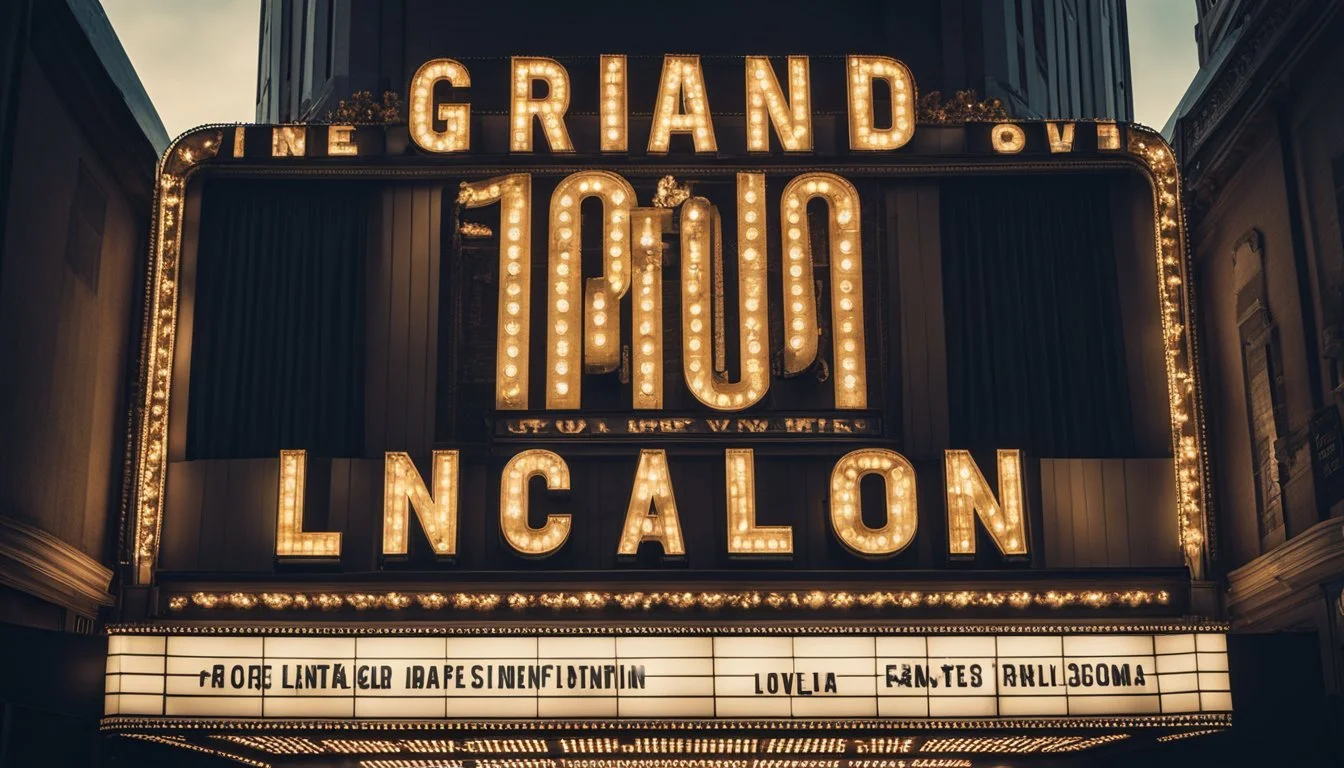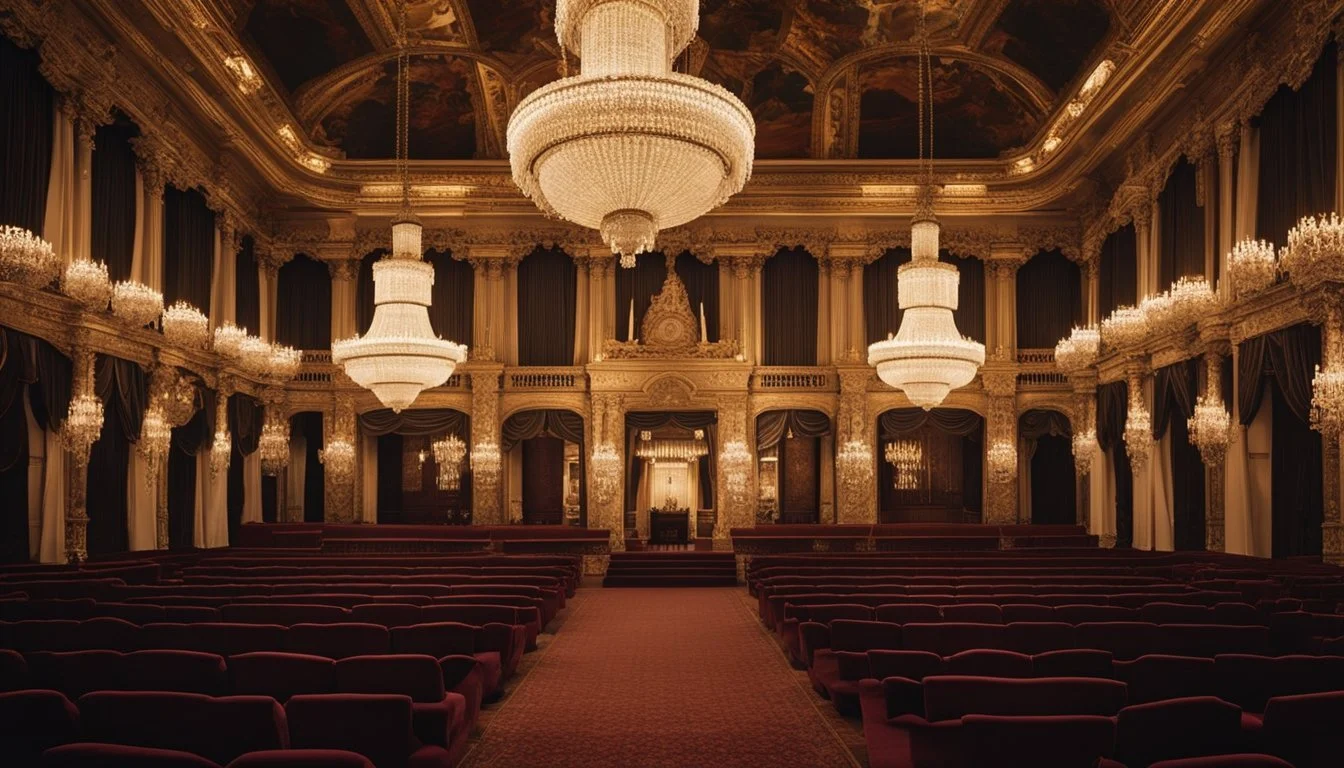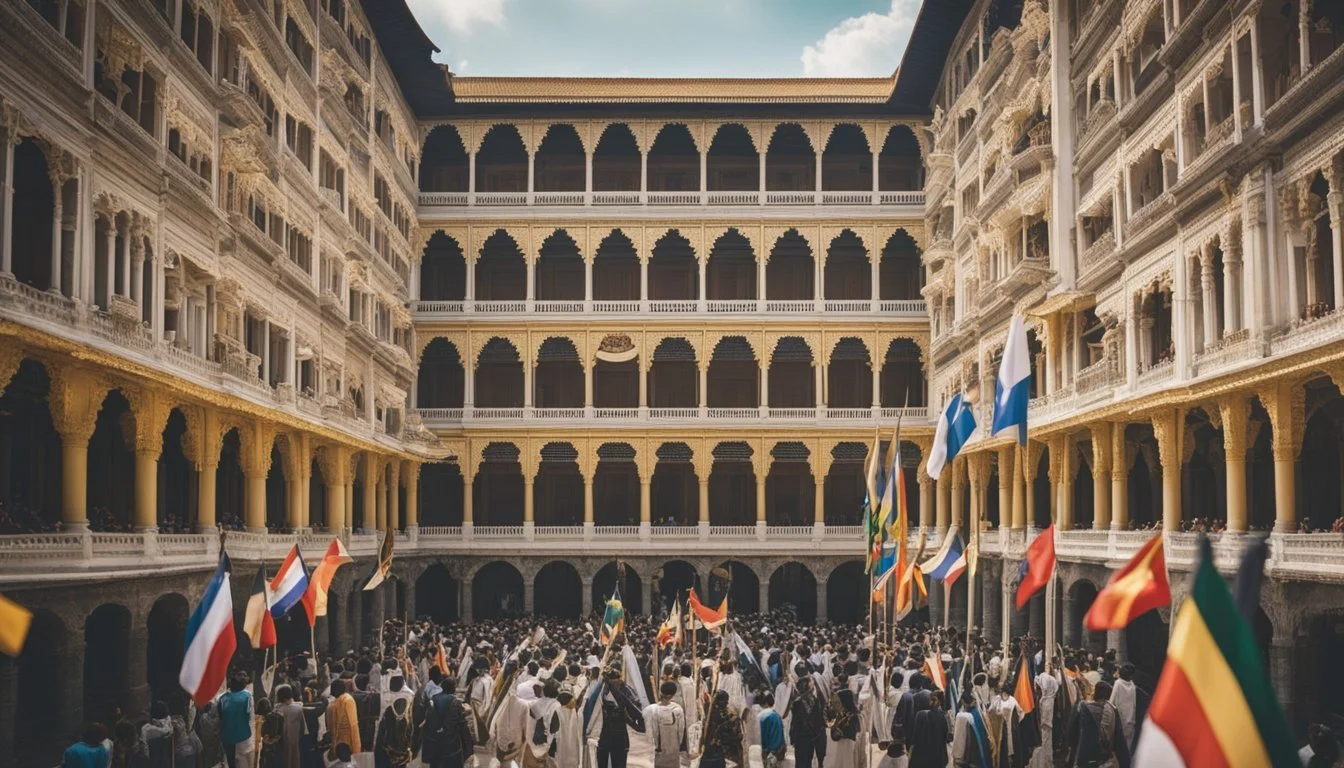10 Riveting Films on Political Dynasties
A Dive into Power and Influence
Political dynasties have long captivated the public imagination, weaving tales of power, ambition, and familial intrigue. These stories often explore the complex dynamics and moral dilemmas faced by those born into or striving to maintain a legacy of political influence. From the manipulation of power to the personal sacrifices made, films on political dynasties provide a unique lens through which we can understand the multi-faceted world of politics.
These films not only entertain but also prompt viewers to reflect on the real-world implications of political power concentrated within families. Through compelling narratives and rich character development, cinematic portrayals of political dynasties offer an engaging exploration of how personal relationships intersect with the pursuit of power, often leading to dramatic and thought-provoking outcomes.
1) The Godfather (1972)
"The Godfather," directed by Francis Ford Coppola, is a cinematic masterpiece that chronicles the saga of the Corleone family, an Italian-American organized crime dynasty. The film is based on Mario Puzo's novel and features stellar performances by Marlon Brando and Al Pacino.
This iconic film explores themes of power, loyalty, betrayal, and the complexities within family dynamics. Set against the backdrop of American capitalism, it highlights the intersections between organized crime and legitimate business operations.
The narrative delves deeply into the personal and political affairs of the Corleone family, offering a gripping portrayal of their rise to power and the moral dilemmas they face. Its cultural impact and legacy in film history remain profound, resonating with audiences worldwide.
For more information about "The Godfather," visit Wikipedia.
2) The Last Emperor (1987)
Bernardo Bertolucci's "The Last Emperor" offers a detailed portrayal of the life of Puyi, the final Emperor of China. The film begins with a young Puyi ascending to the throne in 1908. It charts his journey from the grandeur of the Forbidden City to his later life under house arrest and imprisonment.
The narrative covers the significant historical events that shaped Puyi’s life. It delves into the political upheaval that saw the fall of the Qing Dynasty and the rise of the People's Republic of China. The film’s vivid color schemes and compelling storytelling bring these transitions to life.
John Lone delivers a strong performance as Puyi, capturing his innocence, confusion, and eventual resignation. The movie's ability to portray historical accuracy while engaging viewers earned it nine Academy Awards. The impressive production value and attention to detail make this film a must-watch for those interested in political dynasties.
For more information, visit the Wikipedia page on The Last Emperor.
3) JFK (1991)
"JFK," directed by Oliver Stone, focuses on the assassination of President John F. Kennedy and the subsequent investigation led by New Orleans District Attorney Jim Garrison.
The film is a detailed depiction of Garrison's pursuit of conspiracy theories surrounding the assassination. It suggests that Kennedy's death was the result of a larger conspiracy involving multiple individuals and institutions.
Kevin Costner stars as Garrison and delivers a compelling performance. The film also features a strong supporting cast, including Tommy Lee Jones, Kevin Bacon, and Joe Pesci.
"JFK" is known for its meticulous research and attention to detail. It spurred significant public debate and controversy, prompting renewed interest in the JFK assassination.
The film's narrative style, including its use of flashbacks and reconstructed footage, helps illustrate the complexity of the events.
More information can be found on the JFK IMDb page.
4) The Manchurian Candidate (1962)
The Manchurian Candidate is a seminal film directed by John Frankenheimer. Released in 1962, it stands as a landmark in the genre of political thrillers.
The story centers on a former Korean War POW who is brainwashed by communists to carry out an assassination. Frank Sinatra, Laurence Harvey, and Angela Lansbury deliver remarkable performances, making the plot both thrilling and memorable.
The film captures Cold War paranoia, reflecting the era's fear and suspicion. Its unique mix of psychological elements and political intrigue offers a gripping experience, which has remained timeless and influential in cinema.
Angela Lansbury's role as the manipulative mother is particularly noteworthy, earning her critical acclaim. The film's satirical edge and intense narrative make it a must-watch.
For further details, find more information on IMDb or Wikipedia.
5) All the King's Men (1949)
"All the King's Men" is a classic American political drama that explores the corruptive nature of power. Directed by Robert Rossen, the film stars Broderick Crawford, who delivers a compelling performance as Willie Stark, a character inspired by real-life populist politicians.
The story centers on Stark's rise from a humble rural background to a position of significant influence. His journey is marked by an initial commitment to fight for the people's rights, which gradually transforms into ruthless political manipulation.
Mercedes McCambridge and John Ireland offer strong supporting roles. Their characters contribute to the intricate narrative that dissects the fine line between idealism and corruption. The film's depiction of the fallible nature of political leaders remains relevant.
The movie, based on Robert Penn Warren’s Pulitzer Prize-winning novel, won the Academy Award for Best Picture. Its themes resonate with contemporary audiences, highlighting the vulnerabilities of democratic institutions.
For more information, visit Wikipedia's page on All the King's Men.
6) Milk (2008)
Milk is a biographical drama film that centers on the life of Harvey Milk, the first openly gay man elected to public office in California.
Directed by Gus Van Sant, the film stars Sean Penn in a compelling portrayal of Harvey Milk.
The narrative follows Milk's journey from a New York businessman to a celebrated gay rights activist in San Francisco.
Josh Brolin plays Dan White, a city supervisor whose tragic actions become central to the film’s plot.
The movie not only charts Milk's political ascent but also highlights the broader struggle for LGBTQ rights during the 1970s.
With a strong focus on character and historical context, the film offers an in-depth look at Milk's impact on both local and national politics.
7) The Ides of March (2011)
Directed by George Clooney, "The Ides of March" is an American political drama based on Beau Willimon's play Farragut North. The film offers a gritty look into the world of political campaigns, focusing on the dirty tactics and moral ambiguity that often underpin them.
Ryan Gosling stars as an idealistic staffer who quickly becomes disillusioned. George Clooney, who also directed the film, plays a presidential candidate navigating through the murky waters of politics. The cast includes notable actors such as Philip Seymour Hoffman, Paul Giamatti, and Marisa Tomei.
The performances are compelling and elevate the film's narrative, making it more than just a political thriller. It presents a realistic portrayal of the emotional and physical toll that campaigning can take on individuals. Themes such as loyalty, betrayal, and the corrupting influence of power are central.
For more information, visit The Ides of March on IMDb.
8) Lincoln (2012)
"Lincoln" is a deeply engaging portrayal of Abraham Lincoln’s political efforts during the final months of his presidency. Directed by Steven Spielberg, the film focuses on Lincoln’s determination to pass the Thirteenth Amendment, which sought to abolish slavery in the United States.
Daniel Day-Lewis delivers a masterful performance as the 16th President, capturing the complexities of his character. His nuanced portrayal earned him critical acclaim and an Academy Award for Best Actor.
The film also features a strong supporting cast, including Sally Field as Mary Todd Lincoln and Tommy Lee Jones as Thaddeus Stevens. Their performances add depth to the political and personal challenges depicted.
Spielberg’s meticulous direction and Tony Kushner’s insightful screenplay provide a vivid depiction of the turbulent political landscape of the time. The movie combines historical accuracy with compelling drama, making it an essential watch for those interested in American history and politics.
For more information, visit IMDb.
9) The Queen (2006)
"The Queen" offers an intimate glimpse into a critical moment in modern British history. Helmed by director Stephen Frears, this biographical drama stars Helen Mirren as Queen Elizabeth II.
The storyline centers on the immediate aftermath of Princess Diana's death in 1997. It explores the tensions between the monarchy and the newly elected Prime Minister Tony Blair, played by Michael Sheen.
Helen Mirren's portrayal of the Queen earned her an Academy Award for Best Actress. The film is noted for its strong performances and meticulous attention to detail, providing a balanced look at the intricate relationship between public duty and private grief.
For more information, visit IMDB.
10) Gandhi (1982)
Gandhi is a biographical epic directed by Richard Attenborough. The film centers on Mahatma Gandhi's pivotal role in India’s struggle for independence from British rule.
This movie showcases Gandhi's philosophy of nonviolence and civil disobedience. Ben Kingsley delivers a powerful performance as Gandhi, earning him an Academy Award.
It portrays Gandhi’s efforts to unite people across different religions and social backgrounds. The film also emphasizes leadership and the impact one person can make.
Gandhi’s interactions with political figures and the masses reveal the complexities of resistance and revolution. His legacy continues to inspire movements for civil rights and social change worldwide.
For more details, visit Gandhi on Wikipedia.
Historical Context of Political Dynasties
The development and impact of political dynasties have significantly shaped government structures and influenced political landscapes across the world.
Rise of Political Dynasties
Political dynasties often emerge from families with long-standing political influence. Such families leverage their established connections and resources to maintain political power over generations.
One clear example is the Kennedy family in the United States, starting with Joseph Kennedy Sr., whose children and grandchildren have held numerous political offices.
In countries like India, the Nehru-Gandhi family illustrates a similar pattern. Beginning with Jawaharlal Nehru, India’s first Prime Minister, the family maintained prominence with Indira Gandhi and later Rajiv Gandhi.
These dynasties frequently benefit from name recognition and established political networks, granting them a notable advantage over newcomers.
Influence on Government Structures
Political dynasties can shape government structures by perpetuating specific policies and promoting a consistent political agenda. This often leads to both stability and potential stagnation.
For example, the Bush family in the United States influenced U.S. foreign and domestic policies through the presidencies of George H. W. Bush and George W. Bush.
In the Philippines, families like the Marcoses and Aquinos have played influential roles in shaping government policies and political discourse.
These dynasties can also hinder democratic processes by limiting political competition and reducing opportunities for diverse leadership, often consolidating power within a small elite.
Themes Explored in Films on Political Dynasties
Films on political dynasties delve into intricate themes like the pursuit and abuse of power and the complex pressures of family legacies. These themes offer a rich and compelling backdrop for storytelling.
Power and Corruption
Political dynasties often showcase the lust for power and the moral decline that follows. Characters in these films may start with noble intentions but become corrupted as they seek to maintain or expand their influence. For instance, The Godfather series portrays how Michael Corleone's ambition to protect his family leads him down a path of criminality and moral compromise.
Corruption also manifests through bribery, extortion, and manipulation of political systems. In House of Cards, Frank Underwood employs ruthless tactics, highlighting how absolute power can lead to absolute corruption. Through these narratives, the films underscore the dangers of unchecked authority, impacting not just individuals but entire nations.
Family Legacies
The legacy of a political family often drives the plot, showing the burden and expectations placed on younger generations. Films like Elizabeth portray historical monarchs navigating the pressures of their lineage while establishing their rule.
These stories frequently explore themes of inheritance, duty, and sacrifice. In Game of Thrones, houses like the Lannisters and Starks illustrate how familial ties can both empower and endanger members. This dynamic showcases the dual-edged nature of legacy, where family honor and loyalty can both uphold and doom individuals.
Through these lenses, such films offer insight into the personal cost of maintaining a political dynasty and its impact on broader sociopolitical landscapes.
Cultural Impact of Political Dynasty Films
Political dynasty films have significantly shaped public perception and influenced how audiences and critics evaluate the representation of political power and family legacy in cinema.
Public Perception
Films focusing on political dynasties often highlight the complexities of power, corruption, and legacy. These narratives enable viewers to reflect on real-world political scenarios and question the ethics and morality of dynastic political rule.
Such films can foster a deeper public awareness of political structures and the challenges faced by those within them.
Movies like The Godfather or House of Cards have painted vivid pictures of how familial ties and power interplay, leaving lasting impressions that inform public discourse on political practices and legitimacy.
Critic and Audience Reception
Critics often assess political dynasty films on their ability to balance storytelling with historical and political accuracy. High-quality scripts and strong performances in these films tend to garner praise for their insightful portrayals of political maneuvering and familial dynamics.
Audiences, on the other hand, are drawn to the drama and intrigue inherent in these stories.
Box office successes and critical acclaim underscore the genre's ability to captivate viewers while provoking thought and conversation about real-life political issues. These films often spark debates, reviews, and discussions, cementing their significance in cultural and cinematic history.

